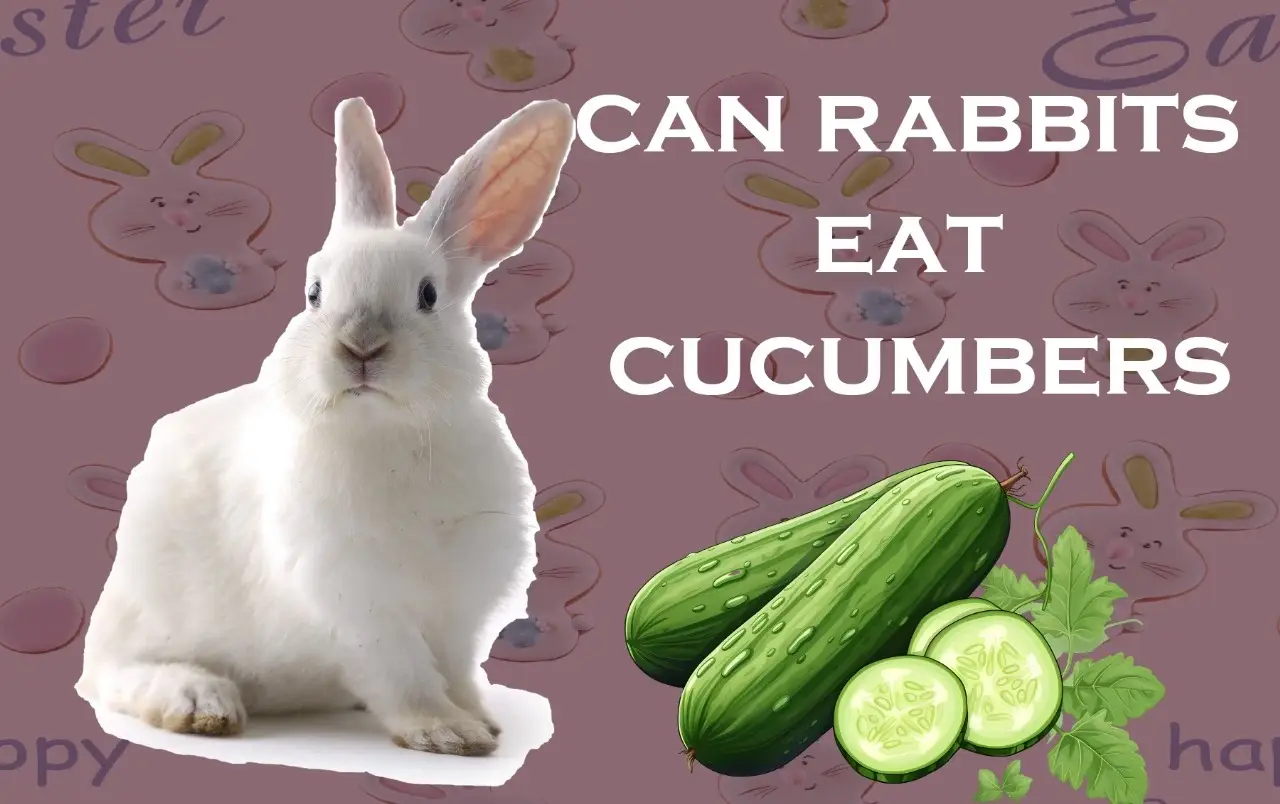Introduction
People commonly feed fresh vegetables to rabbits but some human foods do not provide a suitable diet for these animals. As a rabbit owner you probably wonder whether cucumbers serve as suitable food for your pet bunny. Rabbits have the ability to consume cucumbers provided the intake occurs in moderate amounts.
The following guide investigates good nutrition along with safety concerns and proper feeding techniques for rabbit consumption of cucumbers.
Nutritional Value of Cucumbers
Rabbits can enjoy hydration and refreshment by eating cucumbers since this fruit contains mostly water as its primary ingredient. The nutritional values of cucumbers contain 95% water and 15 kcal calories alongside 3.6 g carbohydrates and 0.5 g of fiber per 100 grams.
Water Content: 95%
Calories: 15 kcal
Carbohydrates: 3.6 g
Fiber: 0.5 g
Protein: 0.7 g
Fat: 0.1 g
Vitamin C: 2.8 mg
Vitamin K: 16.4 mcg
Potassium: 147 mg
Cucumbers give rabbits some vital nutrients but they contain minimal nutritional value. Rabbits should have cucumbers as a dietary supplement as opposed to using them as their main food source.
Health Benefits of Cucumbers for Rabbits
Hydration
The hydration needs of rabbits benefit from the abundant water found in cucumbers because rabbits stay well-hydrated particularly in summer conditions. The hydrating power of cucumbers becomes essential for rabbits who do not drink sufficient water independently.
Low-Calorie Treat
As a low-calorie food source cucumbers serve as a nutritious reward choice for rabbits since their consumption in limited amounts does not lead to obesity.
Potential Risks of Feeding Cucumbers to Rabbits
Digestive Issues
The digestive system in rabbits is delicate which makes the excessive intake of cucumber lead to diarrhea and soft stools because of its watery character and minimal fiber content. New foods should be introduced to a rabbit by giving small portions at a time while watching for negative responses.
Low Fiber Content
The main dietary components for rabbits should be fiber-based feeds such as hay because these support both digestive function and dental well-being. Adding cucumbers to a rabbit diet remains unfavorable because they do not provide enough fiber to replace their standard menu of food.
Pesticide Exposure
Rabbits should avoid non-organic cucumbers because these fruits receive pesticide treatment that proves dangerous to rabbits. Every cucumber should be washed thoroughly before serving to your rabbits as well as choosing organic cucumbers whenever possible.
Choking Hazard
The risk of choking increases for rabbits of small size due to offering them large pieces of cucumber. Provide cucumbers to rabbits through small bite-sized pieces before feeding.
How to Safely Feed Cucumbers to Rabbits
Choose Fresh and Organic Cucumbers
Organic fresh cucumbers represent the best option for your rabbit because they prevent pesticide consumption. Pickled cucumbers along with flavored cucumbers should be avoided because they have harmful additives for rabbits.
Wash Thoroughly
Wash cucumbers with running water as a first step to clear away possible pesticide residues and contaminants which your rabbit should eat.
Slice into Small Pieces
The proper size of cucumbers should be thin slices or small cubes so your rabbit can prevent choking while consuming them more easily.
Introduce Gradually
You should introduce cucumbers to your rabbit gradually when they have never eaten them before. Begin by giving your rabbit a tiny portion and check their digestive health before proceeding with additional servings.
Limit the Quantity
The proper way to feed cucumbers to rabbits is as an occasional reward rather than using them as regular dietary components. Two to three small pieces of cucumber given twice to three times per week present no dangers for your rabbit.
Monitor for Reactions
Pay attention to how your rabbit reacts following cucumber feeding by monitoring symptoms that include diarrhea as well as bloating and discomfort. The presence of unfavorable symptoms requires immediate cucumber consumption suspension accompanied by veterinarian consultation.
Alternatives to Cucumbers
Several safe treat options exist for healthy rabbit feeding.
Most leafy greens suitable for rabbits include Romaine lettuce along with cilantro and parsley and basil.
Bell peppers along with zucchini and carrots are appropriate vegetables for rabbits when served in suitable portions.
Fruits constitute acceptable treats for rabbits but only in small serving amounts including apples bananas or berries.
Conclusion
Rabbits are able to consume cucumbers although these vegetables should be served in moderation. Compared to their other dietary staples including hay and leafy greens, cucumbers should never serve as their main food source because they have low fiber content. Rabbits should begin by receiving small amounts of cucumber while their digestion needs regular observation and their portions should remain small. Following these safety measures will allow you to provide cucumbers to your furry friend as a refreshing snack.
Welfare as well as happiness rely on giving your rabbit nutritionally balanced meals. For dietary changes seek professional guidance from a veterinarian.


